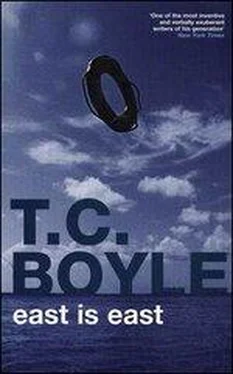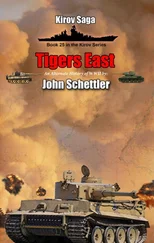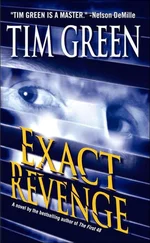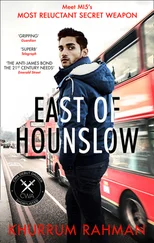Tom Boyle - East is East
Здесь есть возможность читать онлайн «Tom Boyle - East is East» весь текст электронной книги совершенно бесплатно (целиком полную версию без сокращений). В некоторых случаях можно слушать аудио, скачать через торрент в формате fb2 и присутствует краткое содержание. Жанр: Современная проза, на английском языке. Описание произведения, (предисловие) а так же отзывы посетителей доступны на портале библиотеки ЛибКат.
- Название:East is East
- Автор:
- Жанр:
- Год:неизвестен
- ISBN:нет данных
- Рейтинг книги:5 / 5. Голосов: 1
-
Избранное:Добавить в избранное
- Отзывы:
-
Ваша оценка:
- 100
- 1
- 2
- 3
- 4
- 5
East is East: краткое содержание, описание и аннотация
Предлагаем к чтению аннотацию, описание, краткое содержание или предисловие (зависит от того, что написал сам автор книги «East is East»). Если вы не нашли необходимую информацию о книге — напишите в комментариях, мы постараемся отыскать её.
, praised by
in
as "one of the most exciting young fiction writers in America," the result is a sexy, hilarious tragicomedy of thwarted expectations and mistaken identity, love, jealousy, and betrayal.
East is East — читать онлайн бесплатно полную книгу (весь текст) целиком
Ниже представлен текст книги, разбитый по страницам. Система сохранения места последней прочитанной страницы, позволяет с удобством читать онлайн бесплатно книгу «East is East», без необходимости каждый раз заново искать на чём Вы остановились. Поставьте закладку, и сможете в любой момент перейти на страницу, на которой закончили чтение.
Интервал:
Закладка:
Tears had started up in her eyes, but she fought them down. She was angry, hurt, confused—she really was—and yet, in some unassailable pocket of her psyche, she was play-acting too, and she knew it. If they’d only listen, she thought, if they only knew … Standing there at Saxby’s side, her legs tanned and long and slim, her whole body trembling with her daring and anger and hurt over the way they’d ignored her as if she were nobody, as if she were nothing, she knew she had them. She’d got their attention now, oh yes indeed. The smirk was gone from Bob’s face, the walleyed composer looked freshly slapped, and even Irving Thalamus, he of the poker face and deadpan eyes, had changed his expression. If he’d been catty before, now he was an old tom catching a whiff—faint and distant, a molecule on the breeze—of sexual advertisement. “Do something,” she demanded. “Will somebody please do something?”
The next thing she knew she was sitting at the card table, hunched beside Thalamus, spent, while Saxby and Bob went off to phone the Coast Guard, the sheriff, the local VFW post and the volunteer fire department. “Hey, it’s all right,” he said, and she gazed at the lizard’s flesh that sank his eyes, watched him brush back the black morass of his pompadour. He was fifty-two. He was an institution. His lips were dry and hard, his teeth compact, sharp, white. “You did the right thing. Sometimes we all need a swift kick in the ass, right?”
She looked up at him, miserable, but not so miserable, and he took her hand and shook it, his face composed again in its mask of irony.
But now she was in Hart Crane, writing, or trying to write, and all at once the Japanese woman came back to her, the sad doomed heroine drinking in death, the surf yellow in the sick light, her babies lost and gone forever. She had it, the whole scene, and the words were on her lips, at her fingertips, when the first flash of lightning snatched at the trees. At the same moment she became aware of the breeze. Pregnant and cool, it shook the screens and toyed with the papers on her desk. Ruth couldn’t resist it. She pushed back the typewriter and got up to stand at the window and watch the sky deepen overhead. For a long moment she stood there, watching the branches heave and the leaves fan from green to gray and back again, and then something stirred in the deepest recess of her stomach and she thought of lunch.
That stirring was her internal clock. Each day between twelve and one, Owen Birkshead, the inveterate Boy Scout, would slip up on each of the cottages, his tread as light as a Mohican’s, a cat’s, a ghost’s, and hang a lunch pail on the hook beside the door. He played a little game, striving for silence and invisibility so as not to disturb the artists at work, and Ruth played her own little game with him. She waited till her stomach informed her of the hour and then she sat frozen over her typewriter, her ears perked, waiting for the telltale creak of the lunch bucket on its hook or the odd crunch of leaf or twig. And then she would turn, smiling radiantly, and call out “Hello, Owen!” with all the forced cheer of a sitcom housewife. Sometimes she caught him, sometimes she didn’t.
Yesterday had been odd. Not only hadn’t she caught him, but there was no lunch. From the first warning rumble of her digestive tract to its increasingly outraged burbles and yelps, she got up every ten minutes throughout the long afternoon to check the hook, only to find it hanging empty and forlorn. At dinner Owen insisted he’d delivered her lunch—and where was the insulated container, he wanted to know. Had an animal taken it perhaps? Had she looked in the bushes round the place? She’d wagged a finger at him, conscious that Peter Anserine, nose in book, book in hand, was listening. “Don’t give me that, Owen,” she’d said, teasing him, “you screwed up. Admit it. In twenty years no artist has gone hungry at Thanatopsis House—and now this!” She held a good long hiss on the final syllable and then laughed.
Owen reddened. He was forty, looked like Samuel Beckett, right down to the combative nose and stiff brush cut, and he was as meticulous as a drill sergeant—a gay drill sergeant, if such a combination exists. “I delivered it,” he insisted. “I distinctly remember it. Distinctly.”
It was no big deal. But she ordered her day around that lunch—and it was a good lunch too, pâté, crab salad, sandwiches of smoked turkey or provolone with roasted peppers, homegrown tomatoes, fruit, a Thermos of iced tea, real silver and a linen napkin. Before it was the Calvary of the morning; after, the naked cross of the afternoon, winding down to the resurrection and ascension of cocktail hour. Now she wondered, with a sharp pang, if the storm would keep him away, if there was some arcane and venerable rule that forbade cottage lunches during electrical storms, and she had a vision of her fellow artists gathered over a sumptuous spread in the big house and lifting their glasses to the storm that crashed romantically at the windows.
It was at that moment, the moment in which she saw the lifted glasses and glowing faces, that the storm broke. Lightning lit the room; the ground shifted beneath her feet. And then the rain came, combing through the treetops with a whoosh, a sharp smell of the earth and wet rank vegetation running before it, the roof and eaves and screens suddenly alive with it. A second concussion shook the cottage, then a third, and her papers were tumbled to the floor. She rushed for the windows, first the one before the desk, then the one in the corner by the fireplace, and then—she stopped dead.
There was someone on the porch.
A shadow flew across the screen door, there was the dull glint of a lunch bucket, and she cried out. He stopped then and she saw him as he was that night on Peagler Sound, his face splotched with welts and scratches, the red clay of his wet hair, his eyes startled and rinsed out. He saw her. Their eyes met. And then he started back, the lunch bucket cradled in his arms, as slick and wet and glistening as a newborn baby.
Hog Hammock
On day after he’d jumped ship and contemplated the small matter of his own extinction on the breast of the black heaving Atlantic, Hiro Tanaka awoke in a matted tangle of marsh grass. The sun was high, and while he’d slept, exhausted, it had burned his face and hands and the soles of his feet. He was lying on his back in several inches of salt water, suspended above the muck by a pale white tapestry of roots. These were the roots of the marsh grass, Spartina alterniflora. If he had cut through them with the penknife he’d thought to shove back in his pocket prior to taking the plunge from the wingdeck of the Tokachi-maru, he would have found himself up to his neck in the ooze. But he wasn’t thinking about the roots or the ooze or the penknife or the myriad thin seamless cuts the razor-edged blades of the grass had inflicted on him as he staggered ashore in the night. His thoughts, after the initial surprise of waking to birdsong and mudstink instead of rolling decks and Bunker C fumes, focused solely on his alimentary needs.
First off, he was thirsty. Or not merely thirsty, but maddened with the kind of implacable thirst that shrivels Joshua trees and lays waste to whole villages in Africa. He hadn’t had so much as a sip of sweet water since old Kuroda had brought him the tin cup and his balls of rice two days earlier. Salt clung to the hairs of his nostrils and eyelashes, encrusted his tonsils and adenoids, choked off his throat like a pair of strangling hands. He felt as if he were gagging, choking to death, and a wave of panic broke over him. Suddenly he was on his hands and knees, the water cool on his wrists, the sun burning, and he was bringing up stomach acid and bile. The taste of it, astringent and sour, set his throat afire, and though he knew he shouldn’t do it—he’d seen the movies, seen Lifeboat and Mutiny on the Bounty, knew that sea water made you go stark raving mad and was a prelude to cannibalism and auto-phagia and worse—he bent to the water and drank, drank till he felt bloated and sick. Then he flopped over on his back and lay flat and volitionless on his bed of roots, as the stirrings of his second vital need began to gnaw at him.
Читать дальшеИнтервал:
Закладка:
Похожие книги на «East is East»
Представляем Вашему вниманию похожие книги на «East is East» списком для выбора. Мы отобрали схожую по названию и смыслу литературу в надежде предоставить читателям больше вариантов отыскать новые, интересные, ещё непрочитанные произведения.
Обсуждение, отзывы о книге «East is East» и просто собственные мнения читателей. Оставьте ваши комментарии, напишите, что Вы думаете о произведении, его смысле или главных героях. Укажите что конкретно понравилось, а что нет, и почему Вы так считаете.











